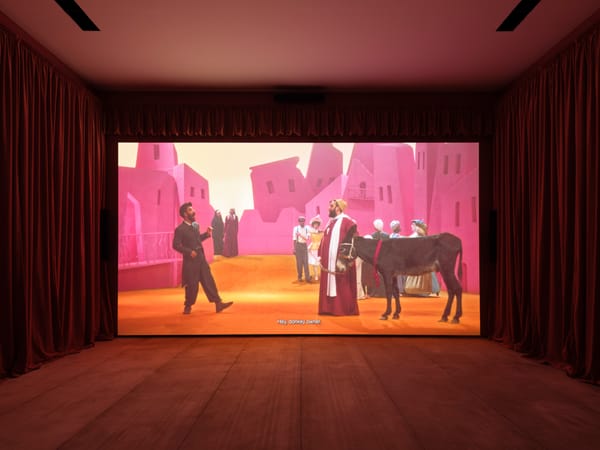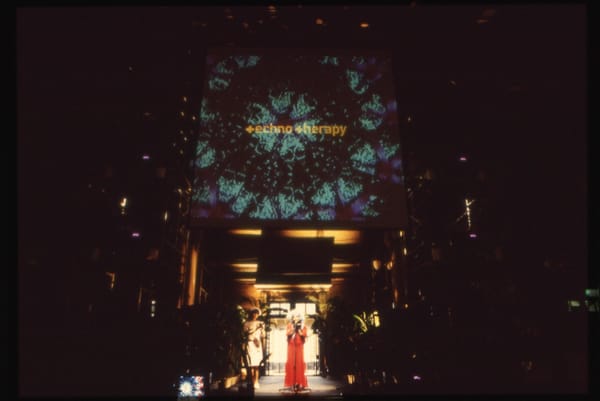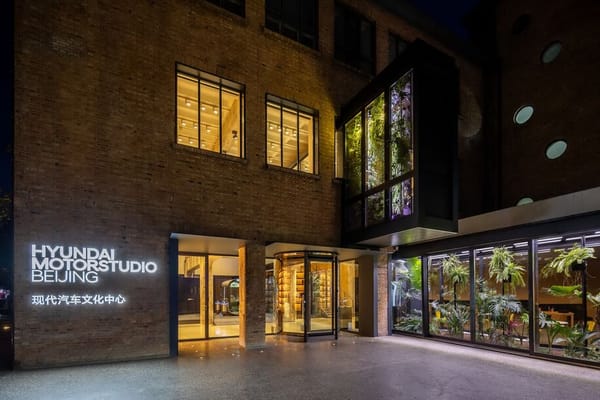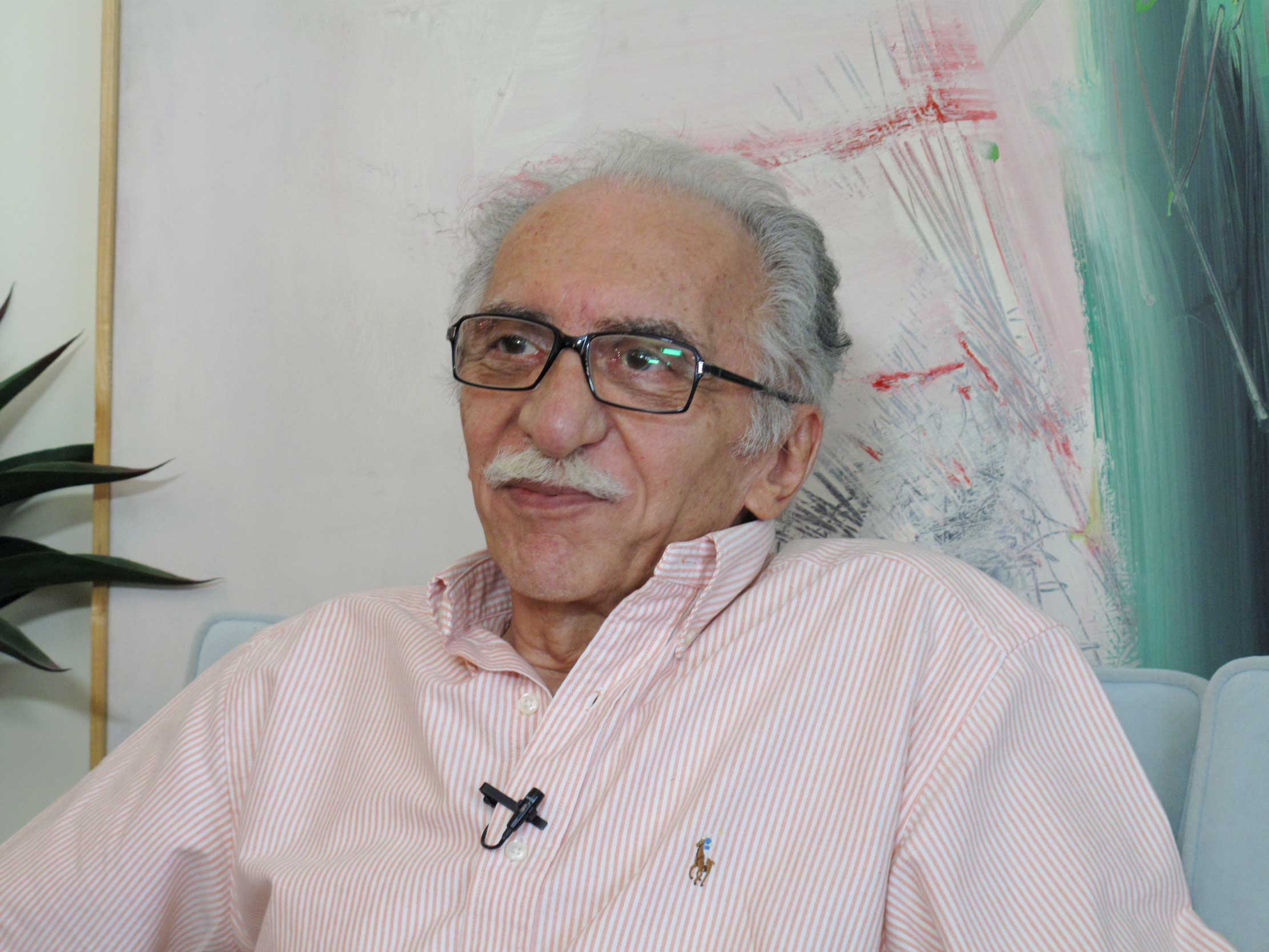Ideas
Highlights from Gwangju Biennale 2018: "Imagined Borders," Part 1
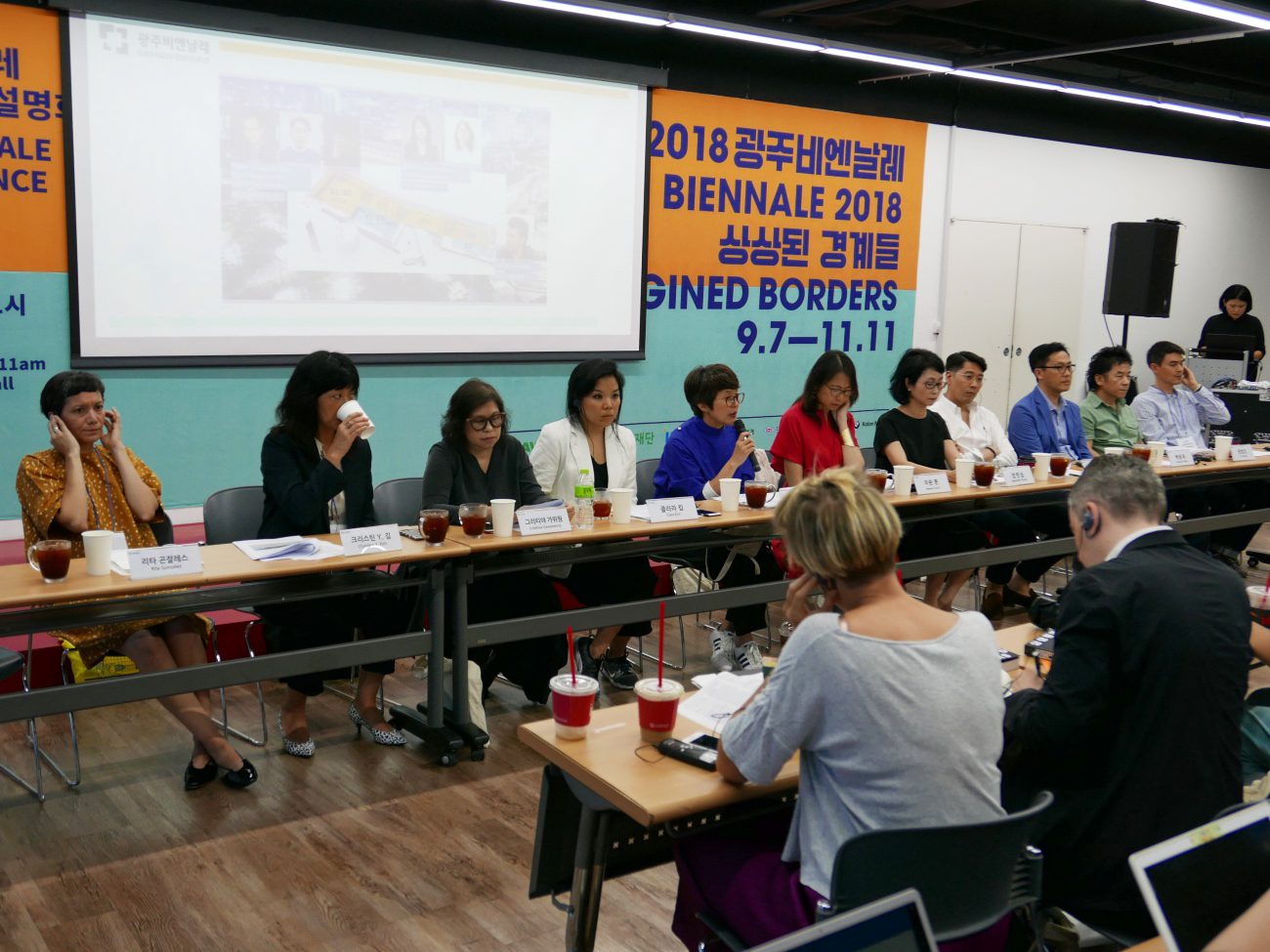

Set in a quiet, sprawling city in the southwestern corner of South Korea, the Gwangju Biennale 2018 is a polyphony. With seven main exhibitions, 11 curators, 165 artists from 43 countries, and, new to this edition, a series of “collateral” pavilions organized by third parties, the 2018 Gwangju Biennale is almost an anachronism—maximalist in a way that harkens back to earlier days of art-world festivalism, when quantity and breadth of representation was the compelling reason for the biennial format in the first place. Indeed, these are characteristics that are inherent to the institution since its founding, as Gwangju Biennale Foundation’s new president, Sunjung Kim, explains in her introductory catalogue text. The 12th edition of the Gwangju Biennale consciously looks back at the inaugural show in 1995, which was titled “Beyond the Borders” and came during South Korea’s “Year of Art” to celebrate the country’s new globalization agenda, as well as to serve as a memorial to Gwangju’s May 18th Democratic Uprising in 1980. That inaugural edition had seven sections, each examining a different geographical region and helmed by its own curator, as well as special exhibitions focusing on “Info Art,” 1990s Korean art and the Gwangju Uprising. This year, again, there are seven sections focusing not on regions but topics that span and define the world today: the legacy of modernist architecture and urbanism in the global South; the hardening of borders amid huge waves of global migration and refugee crises; the insidious and marvelous variety of self-surveillance and information technologies; racial and identity politics; the collapsing of boundaries between nature and humanity, plus a section devoted to reprising the history of the Biennial itself, and one devoted to the contemporary chosonhwa (ink wash) paintings of North Korean artists—a curatorial nod to the newfound potential for political change and reconciliation on the Korean peninsula.
The Gwangju Biennale Exhibition Hall hosted four chapters of the main exhibition, while three others took place at the Asia Culture Center (ACC), used for the first time for the Biennale. The first chapter in the Exhibition Hall was curator Clara Kim’s “Imagined Nations / Modern Utopias,” where the thematic tone was set by Lais Myrrha’s massive white sculpture pairing a 1:1 scale replica of an Oscar Niemeyer column from the Alvorada Palace in Brasilia propped up by a replica of an 18th century colonial-era column. This was followed by many formally elegant engagements with nonwestern modernism, from Ala Younis’s ongoing project about Baghdad’s urban transformation, this time focusing on the female protagonists of the story. Tanya Goel showed a canvas painted with coal, concrete, mica and aluminum, as well as her colorful minimalist abstractions, dubbed “Frescoes,” painted onto pieces of demolished houses in New Delhi. Ram Rahman’s photographic series “Sites of Conflict” (2018) tracked the rise of sectarian politics in independent India through the lens of destroyed architectural structures, a theme echoed in Marwan Rechmaoui’s hand-embroidered banners of buildings, places and people that form Beirut’s much-contested cityscape. The exhibition continued in one half of the hall upstairs, with Shezad Dawood’s neons and paintings on antique fabrics evoking the intertwining of modernism and the esoteric or occult. Pio Abad’s installation Oh! Oh! Oh! (A Universal History of Iniquity) (2013) used an image of the Philippines Plaza Hotel as wallpaper, with gilded objects representing the export of Philippine labor to the Middle East. Kim’s exhibition illustrated the huge importance artists have placed in this last decade on recovering and scrutinizing the complicated legacy of 20th century modernization—as well as how modernist architecture itself serves as a contemporary metaphor for examining the larger question of what it means to create things in a specific place using an international language.
In the other half of the second hall and occupying all of the third was “Facing Phantom Borders,” curated by Gridthiya Gaweewong, which drew on Benedict Anderson’s idea of the nation being an “imagined community,” and how that paradigm has been radically disrupted by both a new global cosmopolitanism and influxes of refugees and migrants. Tom Nicholson’s project I Was Born in Indonesia (2017) went to the heart of what constitutes a country today with ten videos of interviews with Hazara asylum seekers to Australia who are stranded in Indonesia, and 110 resin figurines modeled on the dioramas at Indonesia’s founding memorial, the Monumen Nasional (Monas). Meanwhile, Sawangwongse Yawnghwe’s autobiographical paintings explored the history of the Shan State based on his family archives, which echoes the Myanmar state’s ongoing hostility to ethnic minorities in its borderlands, including the Rohingya community. While many of the works in this section were documentary-based, Apichatpong Weerasethakul’s two-channel video installation Invisibility (2016) features shadowy figures who seem to cross into one another’s dreams, serving as a powerful emotional or psychic encapsulation of the section’s themes of community and togetherness.

Downstairs, Christine Y. Kim and Rita Gonzalez’s show, “The Ends: The Politics of Participation in the Post-Internet Age,” proved to be the divisive one—depending perhaps on how many videos made with faux-corporate aesthetics, artificial-voice narrators and 3D animated graphics you have already seen in recent years. Kim Heecheon’s video Every Smooth Thing Through Mesher (2018) eschewed that stereotype in favor of more disturbing imagery involving two guys discussing Pokemon Go in grainy, low-resolution videos (some shot at night) or haunting but incoherent excerpts from Skype calls. Sunwoo Hoon’s “digital drawings,” shown on vertical monitors and requiring the viewer to scroll down the screens, depicted the recent demonstrations that ultimately ousted President Park Gyuen-hye in a kind of 8-bit style. Mark Lofty’s video revisiting the role of Facebook in Egypt’s 2011 revolution, Route to Dangerous Politics (2018), is a dark tale of thwarted idealism, while Shu Lea Cheang’s UKI Virus Rising was a captivating animated display with a sci-fi-surrealist plot. Miao Ying’s project Chinternet Plus: What Goes On (2017) exemplifies the post-internet genre almost too perfectly in its ironic corporate aesthetic and cheerfully banal slogan “a counterfeit ideology;” however, it presents a serious examination of China’s extensively policed version of the internet, addressing the problems of the world’s largest online space.
As with Gaweewong’s show about migration and refugees, the fact that these topics about the internet and articificial intelligence are common in many artists’ practices is a result of their urgency. As boundaries between communities of people are blurred, both online and in the real world, through refugee flows and the globalization of labor, so are governments trying to restrict people, information and ideas from circulating freely, leading to the hardening of other borders. Despite how different the shows were, seeing thematic explorations of migration and the post-internet age side by side made sense in terms of amplifying and articulating the Biennale’s concept of “Imagined Borders,” itself an internationally relevant topic rooted in the postwar context of modernization and national liberation that much of the world had experienced. The ways in which these themes carried over to the exhibitions at ACC will be explored in the next instalment of this two-part blog.
HG Masters is ArtAsiaPacific’s editor-at-large.
The 12th Gwangju Biennale runs to November 11, 2018.
To read more of ArtAsiaPacific’s articles, visit our Digital Library.

